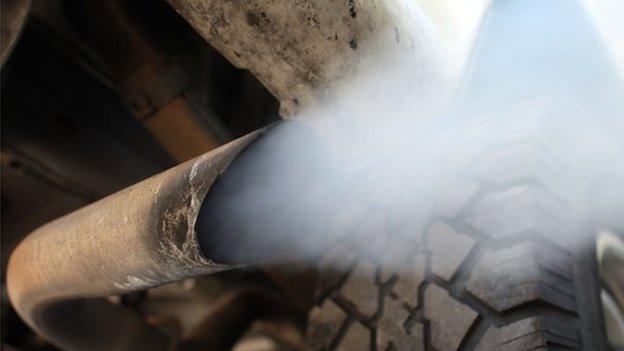Bristol could be UK's first city with diesel ban
- Published
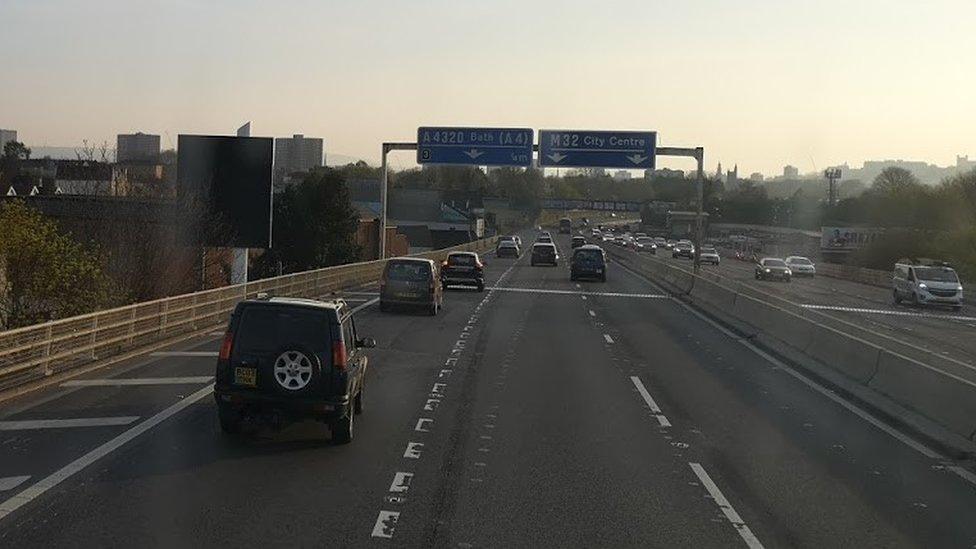
Part of the banned zone will start on the M32 into the city
Bristol could become the UK's first city to ban diesel vehicles from entering parts of the city centre in a bid to cut air pollution.
The city has long suffered from poor air quality, particularly from high levels of nitrogen dioxide (NO2).
The ban would be on diesel cars in a smaller area for eight hours each day while some commercial vehicles would be charged in a larger zone.
The Freight Transport Association said the plan was "unfair".
"Announcing a proposed scheme with such little detail is unfair to the businesses and individuals who work tirelessly to keep the local economy afloat," a spokesman said.
The council cabinet is due to debate the plans, external on 5 November.
The ban zone will include part of the M32, the old city, Redcliffe, Spike Island, the Harbourside, and part of Hotwells.
Under the proposal, which would come into effect in 2021, taxis will be charged £9 and HGVs £100 to enter the clean air zone between 07:00 and 15:00.
A council spokesman said the move "will deliver the fastest possible improvement in air quality against targets for nitrogen dioxide (NO2) legal limits".
"Further measures for tackling air quality through improving and prioritising public transport options are also suggested," he added.
Pete Simson, BBC Radio Bristol politics reporter, said: "It's hard to overstate how significant a policy intervention this is.
"This is a first, no other UK city is introducing an outright diesel ban and it will require the government to introduce new legislation."
The Department for Transport said it was a "local issue".
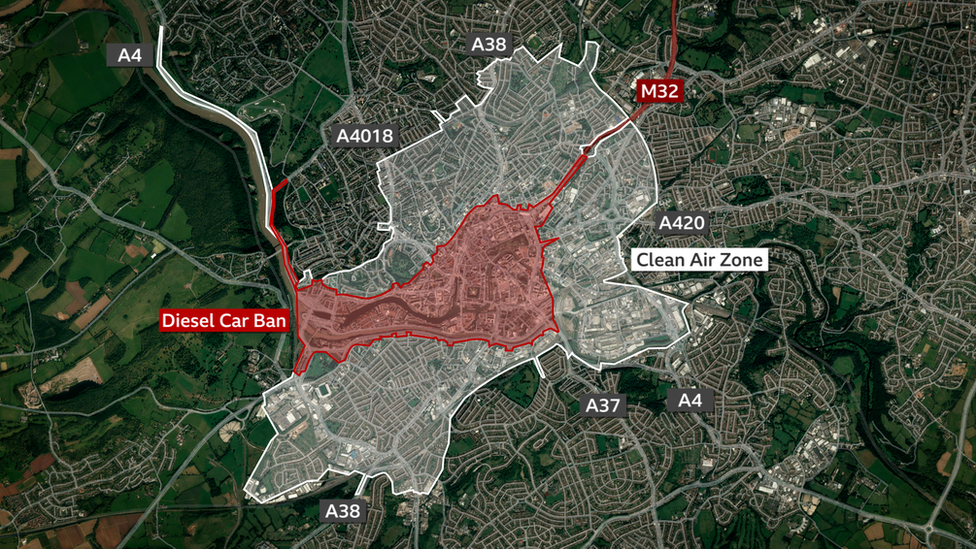
A public consultation earlier this year looked at a clean air zone and a diesel ban. The proposal is largely an amalgamation of both
The plans will mean a charging zone for all high-polluting vehicles, except cars, in the centre and beyond, including Ashton Vale, part of the Portway, Southville, St Phillips Marsh, Bedminster, part of Easton , Montpellier, St Werburghs, St Pauls and Cotham.
The city has twice missed government deadlines for providing details of a clean air zone.
A public consultation earlier this year looked at a clean air zone and a diesel ban. The proposal is largely an amalgamation of both.
It is hoped plan will enable Bristol to achieve clean air compliance by 2025.
The city council says it wants to increase a number of mitigation measures including a scrappage scheme for older vehicles, grants for taxi and light goods vehicle owners to upgrade or retrofit necessary equipment, and loans to help businesses replace their vehicles.
The authority also hopes to introduce new walking and cycling schemes in areas including Old Market, Easton Way, Stapleton Road, and the Bedminster Bridge.
Elected mayor Marvin Rees, said the plans "demonstrate our commitment to tackling air pollution so we meet legal limits within the shortest time, without disproportionally affecting citizens on lower incomes," he said.
"If approved, mitigation measures will support those most affected, especially those living in the most deprived communities."
Follow BBC West on Facebook, external, Twitter, external, or Instagram, external. Send your story ideas to bristol@bbc.co.uk, external.
- Published22 October 2019
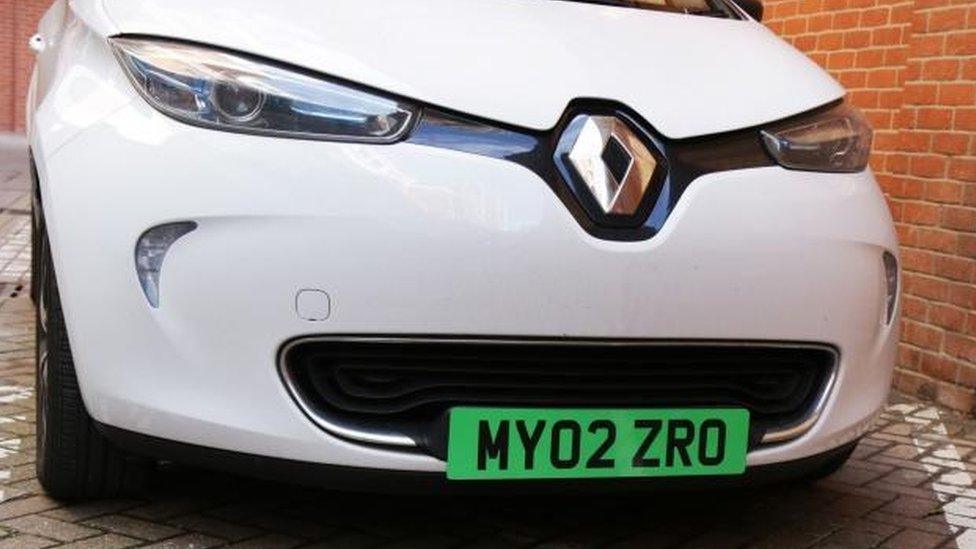
- Published11 June 2019
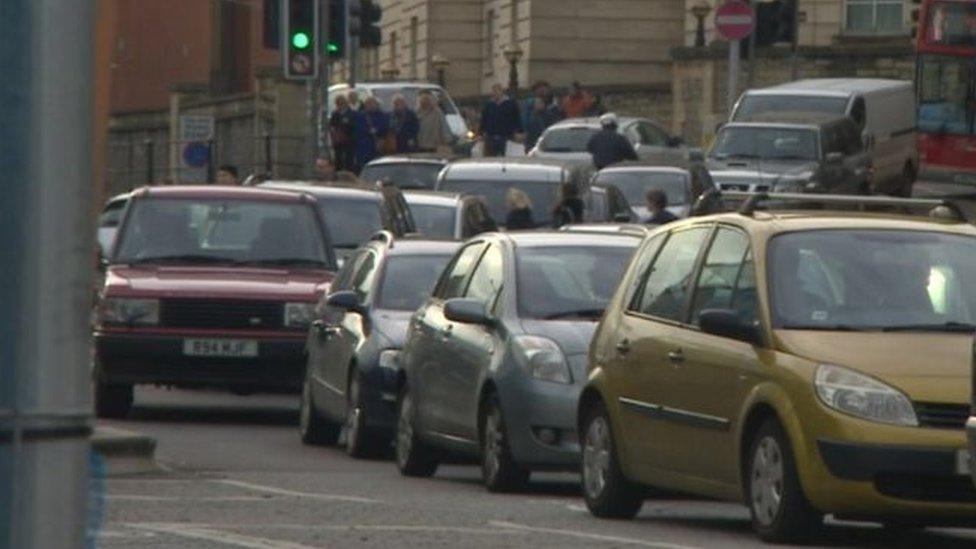
- Published22 January 2019
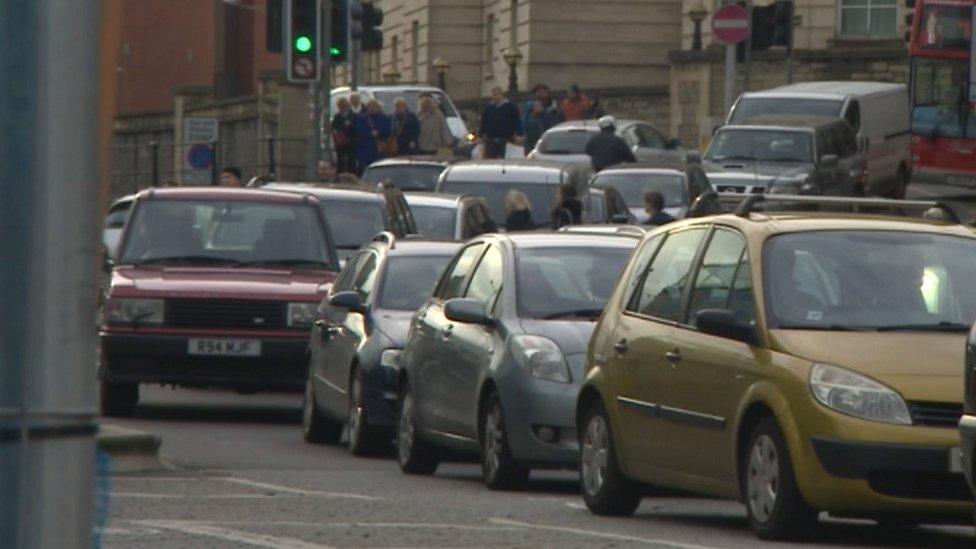
- Published21 February 2019
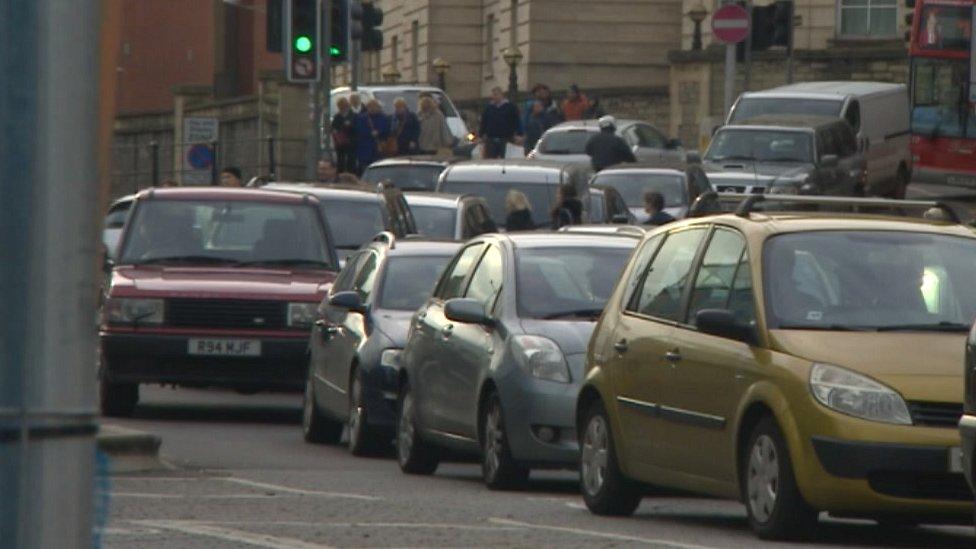
- Published8 August 2017
